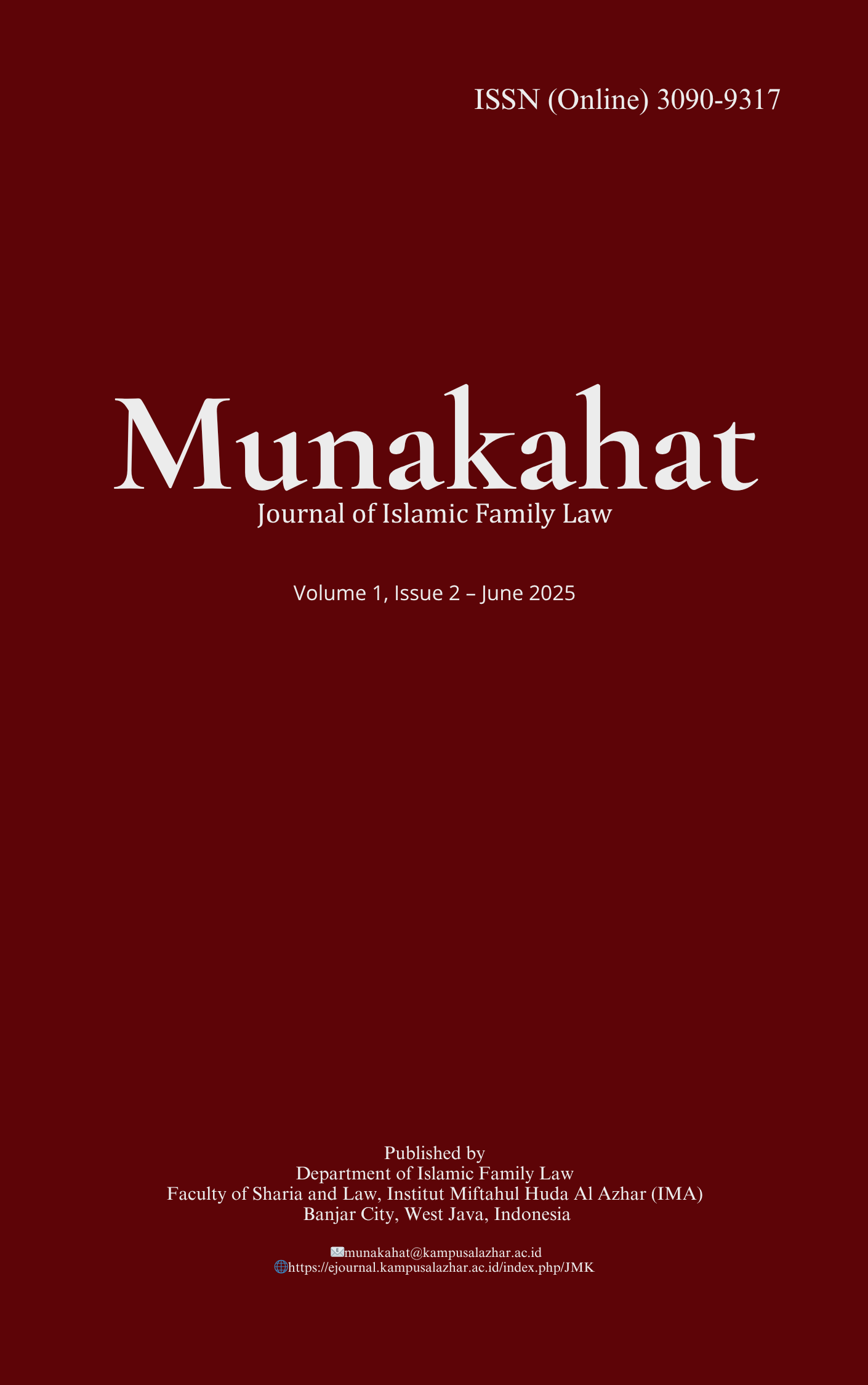Modern Technology in Qibla Direction Mapping: A Comparative Case Study Between Indonesia and South Korea and Its Implications for Islamic Family Law
Main Article Content
Abstract
Background: Accurate determination of the Qibla direction is essential for Muslim worship practices and holds significant implications for Islamic family law, particularly in marriage contracts and religious activities. Advances in modern technology, such as GPS and astronomical sciences, provide innovative approaches for precise Qibla determination.
Objective: This study aims to conduct a comparative case study on the use of modern technology in Qibla direction mapping in Indonesia and South Korea, and to examine the implications of these findings on Islamic family law in both countries.
Methods: A qualitative descriptive-comparative approach was applied. Data were gathered through geographical coordinate analysis, GPS and astronomical methods, and interviews with experts in Islamic family law and religious practitioners in both countries. Additionally, artificial intelligence tools, including ChatGPT, were used to assist in data synthesis and literature review.
Findings: The study found that while similar modern technological approaches are used, the Qibla direction in Indonesia generally points northwest (approximately 292°–295°), whereas in South Korea it points southwest (approximately 253°). This directional difference affects certain aspects of Islamic family law, especially regarding the validity of marriage contracts and religious observances among Muslim minorities.
Conclusion: The integration of modern technology and artificial intelligence enhances the accuracy of Qibla determination, supporting compliance with Sharia law in worship and family law contexts. The study highlights the importance of context-specific approaches considering geographic and socio-cultural factors in different regions.
Novelty: This research uniquely combines modern technology, artificial intelligence, and Islamic family law across Muslim majority and minority contexts, providing new insights into interdisciplinary applications.
